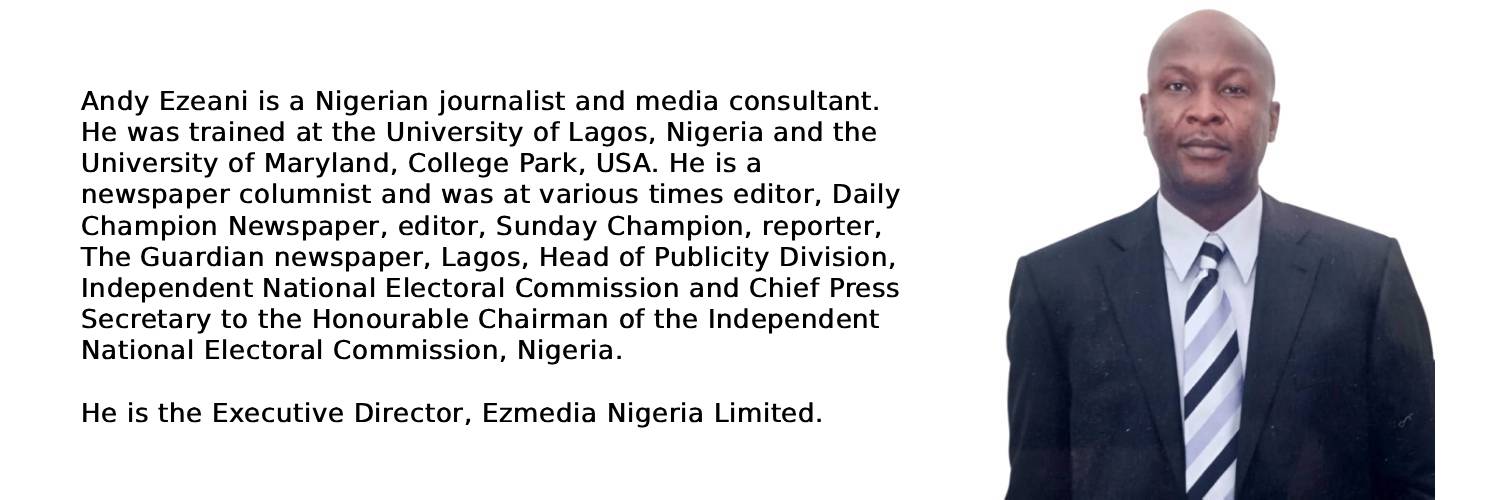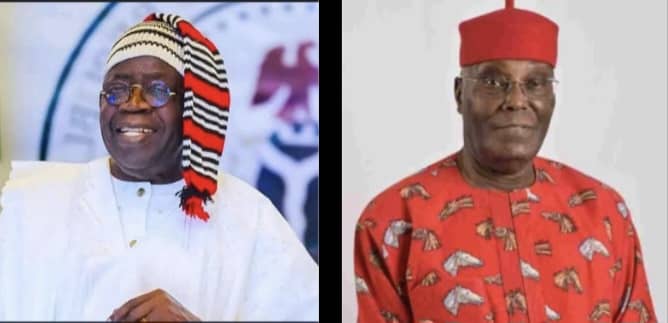Andy Ezeani
There is hardly any critical question about Nigeria’s national existence that it has an answer to. Such an uncomplimentary statement on a country reputedly endowed with good minds. Perhaps it is politics, stupid!
Almost half a century after the country made federal character principle a vital equation for addressing identified disequilibrium in the power dynamics among its constituent parts, Nigeria is nowhere near finding a consensus on how best to manage its diversity. It always comes down to insincerity and proclivity in the parts to short-change the other(s). Consequently, nationhood remains a mirage.
Before the federal character principle evolved as a critical strategy to douse suspicion and address possible marginalization, there was “quota system”. By whatever name, these have been designs to protect the interest of the disadvantaged parts, particularly the north, in public service and national administration, considering its manifest deficit in the area of manpower supply.
The idea of the federal character principle gained ample expression at the Constituent Assembly of 1977 and subsequently became an essential ingredient in the 1979 Constitution. It was preceded by the quota system.
The concepts were, and remain anchored on the necessity to guarantee a sense of belonging to all, especially the weaker end, in a setting where trust among the constituent parts of the state barely exist. Till date, the quota system and federal character principle are retained as vital tools in managing federal appointments, recruitments, promotion and even admission into federal educational institutions.
Operationalizing quota and federal character in a terrain of uneven competence often entailed inverse marginalization. Those who are more endowed lose substantially. That is taken, however, as a sacrifice that needs to be made for all to be on the same page, more or less.
Has quota system or federal character principle outlived their usefulness in Nigeria? Certainly not.
Fifty years down the line, the argument for sustaining the federal character principle continues to be robustly defended in parts of the country. Interestingly, the very proponents of the federal character in one breath often turn out to be the opponents of applying the same federal character in another breath. Here lies a Nigerian conundrum, one among many.
In 1998, in the course of politicking for a new democratic dispensation that was about to materialize with the exit of the military from government, Peoples Democratic Party (PDP), the pre-eminent political party of that era, fashioned out the zoning formula. The arrangement prescribed rotation of prime political offices, among them the leadership of elective positions in the legislature, the executive, and the political party.
Essentially, zoning, with its attendant rotation of offices, was the federal character principle by another name. It may not have been inserted in the constitution, but it approximated what Nigerians yearned for to have a stakeholder mentality in the enterprise of Nigeria. The then opposition parties had no better arrangement, anyway.
When therefore, at the end of eight years of Olusegun Obasanjo’s presidency, Rivers State governor, Peter Odili launched a blistering campaign and got close to winning the presidential ticket of the ruling party, his move was resisted. The north could not take the attempted breach. Odili’s spirited effort collapsed dramatically, clearly, in obedience to the dictates of zoning.
Would Odili have made a good president? Possibly, yes, but the cost for national peace and cohesion would have been enormous.
That was how Umaru Musa Yar’Adua emerged. And what a promise he held out. Sadly, he died. The tense attempt by northern political interests to hinder Vice President Goodluck Jonathan from succeeding Yar’Adua was for no other reason than the need to respect the zoning arrangement. There was, however, a glaring conflict between the constitutional provision on succession and the zoning arrangement that was not written down in the constitution, useful though it may be.
Even at that, many among the northerner political class never felt that justice was served as long as Jonathan was president. It was therefore, understandably unacceptable to these that after serving out Yar’ Adua’s term and another four-year term of his own, Jonathan would seek another term in 2015.That bid was bereft of good faith and sensitivity. That was how the north, whether in PDP or in opposition, coalesced behind Muhammadu Buhari, who prevailed in the 2015 election. It was a triumph for zoning.
Among those who lined up on the side of protecting the sanctity of the zoning arrangement was Atiku Abubakar, former vice president.
Ten years after 2015, not counting his earlier bids in 2007 and 2011, Atiku has been oscillating in public reckoning, between a statesman and an imitation of a political journeyman. In 2023, he compounded PDP’s problems by running for president, out of turn. That did not enhance his profile one bit. Now, he is at it again for 2027. Even as a hobby, that has become an uncomplimentary distraction.
Atiku is, however, not entirely the issue here. The focus is on tendencies that align with the illogicality of his political decisions.
Nigeria’s political class is a gifted clan in everything but that which elevates. Concern with candour, equity, and cohesion in the environment they inhabit is hardly their forte. For individuals in this class, consistency and truth are anathema.
In the wake of PDP recently zoning its presidential slot for the 2027 election to the South, some political groups in the north were reported to have vehemently opposed the arrangement. The worth of the PDP decision is entirely another matter, but that is not the issue here.
In deciding to reserve its presidential slot for a southern candidate, the PDP obviously took cognisance of the fact that the sitting president of the country is from the south. He came in after a northern president exhausted eight years. The south should be expected to have its own eight years, one way or another.
When Peter Obi pitched a single term in his current bid for president, he publicly acknowledged the existence of the zoning arrangement, which has steadily translated into a guiding national policy, even if it is not written down in black and white.
Interestingly, even for all of Obi’s known integrity and character, some tendencies in the north remain uncomfortable. How can they be guaranteed that someone will not renege?
In other words, these northern interests acknowledge that it will be the turn of the north after 2027. That is an acknowledgment of the existence of rotation and zoning.If that is the case, what is the basis of quarreling with PDP or ADC or any other party that restricts its presidential slot to the South?
If Atiku is insisting that it is a free field and zoning should have no binding effect on the choice of presidential candidates, where lies the honesty in his opposition to Jonathan in 2015 or even 2011?
In all this, whether as it concerns Atiku or Bola Tinubu, it is convenient for them and their followers to pretend not to recognize that what equity allotted to the South East is what they have appropriated. Tinubu even dares to talk of southern solidarity, to the extent that it suites his purposes.
Atiku, on the other hand, not only purloined what belonged to the South East in 2023 but has returned for an encore on another front, for 2027, with no qualms. Yet, these are Nigeria’s statesmen, in a country where “peace and justice reigns”. Such a caricature of values that ought to elevate a nation.


